Sacred Chickens
Menu
SACRED CHICKENS
 Pale apricot rose with green leaves - photo by JPC Pale apricot rose with green leaves - photo by JPC The Unlovable Garden by Julie Carpenter I have had and loved many gardens, from my very first back yard in Memphis, where my boxer dug up the plum trees and ate half my climbing roses, to the haunted hillbilly house where we didn’t need curtains in spring because the wisteria draped itself in billows from the big oak tree out front. But I had one garden that, if I’m being honest, was hard to love.
1 Comment
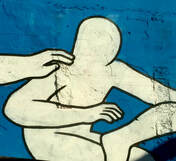 Graffiti seen from a train window in Belgium, 2015 Graffiti seen from a train window in Belgium, 2015 Four Poems by Jeff Weddle We Could Be Heroes Just Your Standard Love Story Settled In Not John James Audubon, Actually We Could be Heroes After they murdered Kong, the flyboys went out for beer. “What a day,” Larry said to no one in particular. “Did you see that damned thing? Big as a damned department store.” “Can department stores really be damned?” asked Reggie, the twin brother of Larry’s ex-wife, Maud. 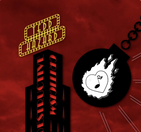 Tedd Hazard Destructive Criticism Self-released Review by Roy Peak The acoustic scene in Pennsylvania is crazy damn strong. There must be something in the seltzer. There's folk punk icons Apes of the State with their high energy acoustic emo songs of higher truths; the highly prolific and rocking A Day Without Love; Sweet Anne Marie who sings honest songs of relationships and moving on; and now we have Tedd Hazard, a gruff-voiced singer from Pennsylvania who released an album of 17 songs that clock in just under 49 minutes called Destructive Criticism. 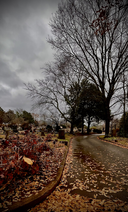 Five Poems by Luis Cuauhtémoc Berriozábal Broken Face Your Memory Cruises Be There The Stumbler A Better Place Broken Face I have a broken face like Black Francis in Surfer Rosa. The sky fills with clouds and twilight enters my eyes. I open up my mouth to catch the rain that starts to fall this evening. I lean against the wind that walks with me. I am weeping as a silver moon breaks away from the clouds. 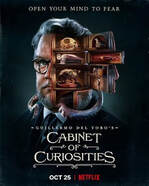 Guillermo del Toro's Cabinet of Curiosities Netflix Series Review by Roy Peak Guillermo del Toro has been a bit hit and miss with me. His films always have an ambience to them, an atmosphere of dread and mystery, a most interesting color palette, unique stories, often with scenes of weird violence and grotesqueries unimaginable. Often the sets are a character as much as the actors. Pan's Labyrinth was all mood and horror mixed with a sweet fairy tale, but I figured out the "surprise" ending almost immediately. His Hellboy films have been nice to look at but I miss the fun and sense of embracing horror that creator Mike Mignola imbues his comics with. In The Shape of Water del Toro was able to seamlessly meld horror, dark fantasy, and romance into a one of a kind magical feature. (More like this, please.) In the Netflix series Cabinet of Curiosities del Toro himself introduces these eight tales of horror in the manner of Rod Serling's Twilight Zone, using an intricate cabinet as a set piece for each show. Most of these tales are lifted straight out of pulp horror fiction literature, which works well with del Toro's style. 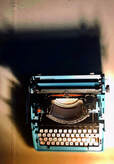 Photo courtesy Briianvision Photo courtesy Briianvision Dream Writing by Julie Carpenter I have a vivid dream life that sometimes crosses over into my writing. Of course, many times, dreams die with the light, cracking into dust and scattering. Poof! I’m no longer running in place through a field of skulls while zombies fling lime Jell-O bombs at my head or sweating through an interview with FBI agents in the guise of talking dogs, or whatever was happening in those immediately forgotten visions. Vanished nightmares disappear into a miasma of never-was. Just as well. But sometimes I have dreams that follow me into the waking world, hanging on in the light, refusing to dissipate, some lucid as the full moon behind inky tree branches, some hiding around corners and only jumping at me when triggered by an object, a word, or a scent. Those detailed dreams I sometimes put into words and stories. Dreams seem safer pinned in ink to a page. Is this cruel? I can’t tell but I reserve the right to defend myself. 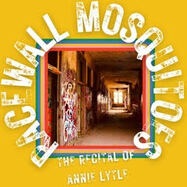 Racewall Mosquitoes The Recital of Annie Lytle Review by Roy Peak Racewall Mosquitoes is what you get when you mix the songwriting, guitar playing, and singing of Matt Morgan along with the production of the indie-pop band Summer Obsession's Luke Walker. Chugging acoustic rhythms meld with layers of vocals and razor sharp electric guitar throughout, a soundscape fitting for this haunting, mysterious, and thought-provoking album.
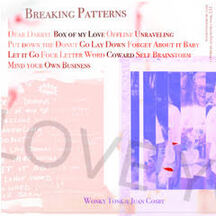 Wonky Tonk Breaking Patterns Review by Roy Peak Just over ten years ago Wonky Tonk and Juan Crosby produced her album SuperHolyFantastic & Hippie Dirt (Business and Pleazure). Now they’ve teamed up again for Tonk's latest album titled Breaking Patterns. This is an album of catharsis and rebirth, of soldiering on and taking chances.
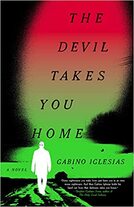 The Devil Takes You Home Gabino Iglesias Review by Roy Peak A while back I reviewed Gabino Iglesias' earlier novel, Coyote Songs, a book which successfully straddles the line between noir and horror. Barrio noir is what Iglesias himself calls it. Iglesias' most recent entry into the horror genre ups the ante with a tale of revenge, double-crosses, great emotional loss, second chances, and some of the scariest, grisliest scenes yet successfully penned by anyone.
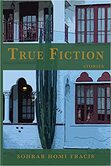 True Fiction, Short Stories by By Sohrab Homi Fracis Review by Roy Peak Sohrab Homi Fracis was born and raised in India, moving to America to become a systems analyst, before abandoning that idea entirely to teach literature and creative writing. He has won several writing awards, and this is his third book of fiction.
|

Click Photo above to buy ebook or paperback from Amazon.
Here's the link to Barnes and Noble Or order through your favorite independent bookstore! Categories
All
|
 RSS Feed
RSS Feed